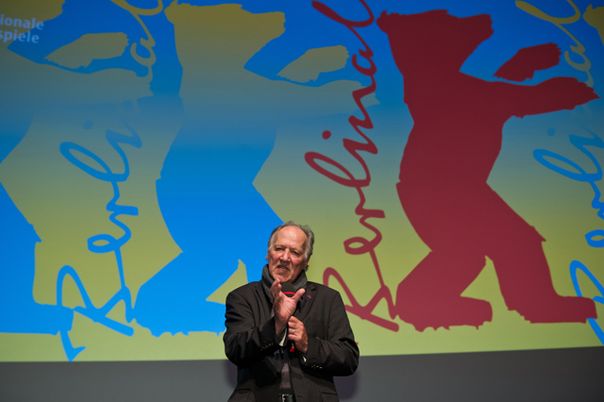You Have to Know the Heart of Man
Werner Herzog presents his four-part TV project on death-row inmates as part of the Berlinale Special.

Werner Herzog presents DEATH ROW
Not only a strong commentary on capital punishment, Werner Herzog‘s Berlinale Special entry DEATH ROW is also a lesson on how to face other human beings, and therefore, be able to communicate with them. DEATH ROW is comprised of four episodes, each one focusing on a different crime. Herzog chooses his interviewees, however, not based only on the nature of their crime, but also on the person behind it.
In a talk after the screening, Herzog said: "Interviewing is a lot like casting. To interview you have to know the heart of man." Indeed he did an uncanny casting: four criminals who count the days waiting for the date of their execution. It's a visceral choice: at first we feel we are dealing with something unrelated to us, and we soon begin to see ourselves reflected in their behaviour. They are articulate human beings with dreams, fantasies, humour and a lot of intelligence, with different histories and different backgrounds. People tend to see them as monsters, but Herzog is clear: "They're not monsters. Their crimes are monstrous." In some cases, we can't even be sure about the inmate's guilt and it actually doesn't matter. What matters is who they are and how they feel in that moment.
In Herzog's response to the question why he didn't make a feature film about the inmates' stories, he says: "This is not material for a feature film." And he's right. A feature would dramatise facts and doubts that can't be dramatised and would take up the whole purpose of the project. To fictionally portray them would either transform them into monsters or into victims - victims of a terrible legal system or victims of life itself. That's not the point. He could show James Barns as a Hannibal Lecter-like psychopath, or Linda Carty as a wronged hero (or either a compulsive liar), the real beauty of the movie however lies in the ambiguity of the facts. Human beings are ambiguous, and that's the reality about everyone.
DEATH ROW's observational strength overcomes the supposed TV format. We're able to really look at the inmates, to see their expressions, their reactions. Sometimes we're even able to see Herzog reflected in the glass between them, as if he was projected on their faces. He shows us the inmates before explaining their crimes, giving us the opportunity to see them without any prejudice – a stylistic choice which is completely distinct from the usual TV style documentary. It's funny to see, though, how the D.A.'s on these cases seem more vicious than the inmates themselves. They make a real effort to dramatise the victims, sometimes trying to affirm a certainty they cannot have. Maybe that is a way of keeping their conscience clear about sending someone to death: demonising the other, and avoiding seeing how much they're actually alike.


301 Moved Permanently